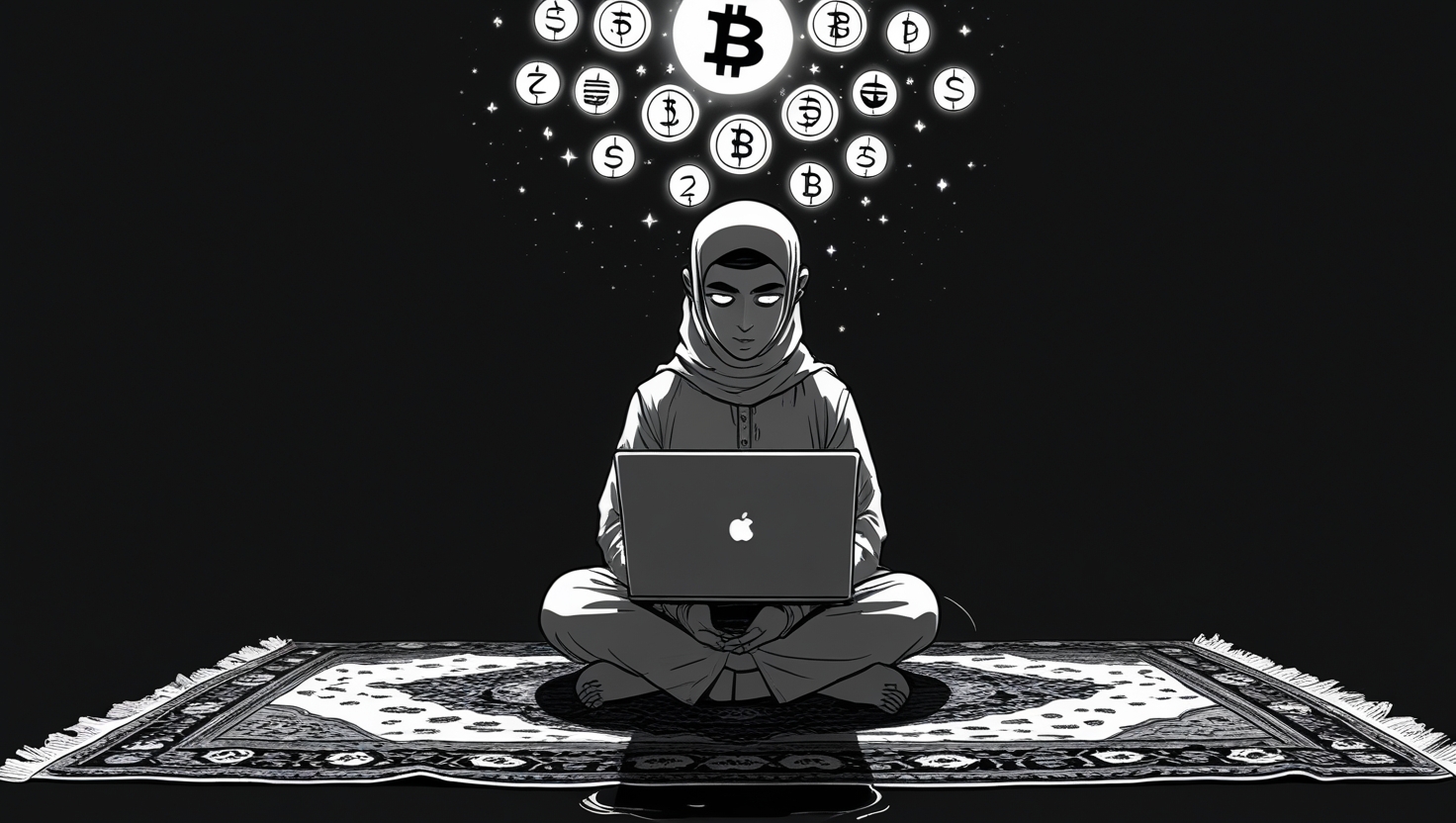The integration of modern technology with traditional lifestyles often brings forward questions that transcend beyond mere economics. One pressing query among the Muslim community is: is making money from youtube haram? This article explores the intricate intersection between digital entrepreneurship and Islamic beliefs. We will examine the subject from an Islamic jurisprudence perspective, consider the potential pitfalls of monetizing content on a platform like YouTube, and provide practical guidance to ensure that your activities are inline with ethical and religious expectations.

YouTube Income and Islamic Ruling: An Overview
At its core, the issue of generating income from YouTube is multifaceted. On one hand, YouTube offers a platform for creativity and education. On the other, aspects such as advertising content, sponsorships, and the nature of the material shared can raise serious ethical questions. To better understand this subject, we must first explore the basic principles of Islamic finance and moral conduct within the digital realm.
According to various Islamic scholars and jurists, the permissibility of any income is highly dependent on both the source of revenue and the intention behind it. In other words, while the process of earning money through YouTube might be seen as a necessary financial activity, the ultimate determination hinges on the content’s alignment with Islamic teachings.
Halal or Haram YouTube Earnings: What Determines the Ruling?
The question of is making money from youtube haram is not a one-dimensional issue. The answer lies in various factors that can influence the Shariah compliance of the income. For instance, the revenue obtained via advertisements and sponsorships must originate from halal sources. Let’s consider a few important aspects: the nature of the content, the type of advertisements displayed, and the intentions behind creating the content.
If a YouTuber disseminates educational materials, inspirational messages, or genuinely useful content and the income is generated in a transparent manner, many scholars argue that such earnings can be considered halal. However, if the content indirectly promotes haram activities or includes elements such as inappropriate advertising, the earnings might be deemed questionable.
Content Nature and Its Impact on Earnings
A critical factor is the actual nature of the YouTube content. Islamic teachings emphasize the importance of promoting moral values and avoiding any material that may lead audiences towards unethical behavior. When YouTube content includes topics or products that are questionable from an Islamic perspective—like material that glamorizes haram activities or features advertisements for non-halal products—the income generated could potentially fall under the prohibited category. Conversely, creative channels that focus on self-improvement, Islamic history, religious studies, or even healthy lifestyle pursuits are more likely to align with halal principles.
The Role of Advertisements and Sponsorships
Another pivotal element encompasses the ads, sponsorships, and partnerships that accompany your content. Islamic guidelines necessitate vigilance in ensuring that any advertisements or endorsements align with ethical standards. For example, if a channel promotes brands or products that are in direct conflict with Islamic law, then the entire income stream may be considered problematic. Conversely, rigorous self-regulation and the choice to partner only with companies and products that are confirmed to be halal can result in earnings that are well within Islamic guidelines.
Islamic Guidelines for YouTube Content: Practical Insights
When considering the question of is making money from youtube haram, it is essential to adopt a practical approach that considers both religious values and the demands of the modern digital landscape. Islamic scholars recommend that creators routinely assess their content and revenue streams to ensure full compliance with Shariah. Here are some practical suggestions:
| Aspect | Recommended Approach |
|---|---|
| Content Integrity | Avoid topics or visuals that promote unethical behavior. Focus on educational and moral themes. |
| Advertising Policies | Only accept advertisements that support halal products and values. |
| Sponsorships | Ensure transparency and seek sponsorships from companies with a solid halal reputation. |
| Intention | Maintain a clear and sincere intention to provide value and adhere to Islamic principles throughout your journey. |
This table summarizes the key factors that must be carefully considered by any content creator aiming to align their income sources with Islamic values.
The Impact of Intention and Transparent Practices
In Islam, the intention (niyyah) behind any action is as significant as the action itself. When a creator embarks on a journey to earn money through YouTube, it is crucial to reflect on why they are doing so. Is the goal to simply amass wealth, or is there a broader mission to educate, inspire, and serve the community? This classical understanding of intention plays a fundamental role in determining whether the income is halal or haram. Furthermore, transparent practices in income reporting—such as clear financial disclosures and the use of ethical advertisers—enhance the credibility of one’s commitment to Islamic principles.
Balancing Modern Views with Traditional Teachings
The transformation of media and communication has led to significant changes in how communities connect and share ideas. With platforms like YouTube now at the center of content creation, many contemporary Muslim entrepreneurs find themselves navigating a new terrain. It really makes you wonder: how can one embrace the benefits of modern technology without compromising on age-old Islamic values? The answer lies in establishing clear boundaries. Personal experiences for many have shown that by aligning creative output with ethical standards, success in digital entrepreneurship is achievable without straying from the moral compass provided by Islamic teachings.
Real-Life Experiences and Community Feedback
Many creators within the Muslim community have shared their journeys in forums and social media groups. Their stories reflect a blend of challenges and victories. Some have reported internal conflicts while navigating the world of sponsorships and advertisements. These individuals highlight the importance of community feedback, scholarly guidance, and a strong personal moral code. Their experiences underscore how critical it is to avoid shortcuts that may inadvertently lead to the promotion of haram products or messages. Have you ever experienced or observed similar concerns when consuming online content? Such reflections can help create a more inclusive and ethically sound digital community.
Ensuring Compliance: Step-by-Step Guide for Aspiring Creators
For those wanting to know whether it is possible to make money on YouTube without conflict with the teachings of Islam, the answer can be seen through rigorous self-examination and trusted counsel. The following are some steps that will help keep your activities halal:
To start, check the content which you are producing. Ask yourself: does my content motivate my viewers? Does it encourage honorable conduct? Secondly, review your sources of income by looking at the types of advertisements that appear on your videos. Avoid brands that have failed to maintain Islamic ethical standards. In addition, seek advice from veteran scholars in the community. Experienced scholars can counsel based on what fits your case and ensure that you make the best choices. Finally, be completely open with your audience about how you generate money. This creates trust and confirms your commitment to ethical values.
Addressing Common Doubts and Misconceptions
One might ask, is making money from youtube haram because of the potential involvement in haram advertisements or unapproved partnerships? The key to answering this doubt lies in refining and tailoring your approach. Rather than a blanket rejection of income, discerning creators can adopt practices that allow for a morally acceptable trajectory. While debates continue among scholars, many believe that if the overall impact is positive and the content adheres to ethical guidelines, then the income can be considered halal. It is all about balancing profit with principled content—a journey that requires ongoing introspection and adjustment.
Using Technology in a Spiritually Aligned Way
Digital platforms like YouTube are here to stay, and they offer unprecedented opportunities for education, social interaction, and economic empowerment. The challenge is to harmonize these benefits with a spiritually aligned lifestyle. For those exploring the possibility of converting digital skills into Islamic service, the community offers numerous success stories where modern technology and traditional wisdom go hand in hand. If you’re passionate about sharing Islamic values, consider creating content that not only entertains but also educates. This approach not only fosters a more profound impact on your audience but also helps alleviate the internal conflict regarding the permissibility of your earnings.

Looking Ahead: Future Challenges and Opportunities
As the online world continues to evolve, the debates regarding the validity of online earnings will only become more complex. Shifts in advertising formats, the rise of branded content, and the advent of embedded e-commerce are some of the challenges content creators will have to navigate through.
It is essential that Muslim content creators be attuned to both technological innovation and shifting interpretations of Islamic law. This ongoing conversation between tradition and modernity represents fertile ground for argument and innovation. What will the future hold for your channel in this era of changing terrain? Reflection on these questions can provide the vision required to ensure continued spiritual and financial integrity.
Related Resources
For those interested in exploring more about how to navigate the monetization landscape while ensuring compliance with Islamic guidelines, consider checking out this detailed guide on ways to make money from youtube. Additionally, reputable external resources such as the Islamic Finder provide further insights into contemporary Islamic rulings. These resources can serve as valuable companions in your journey of balancing digital success with faithful adherence to religious principles.
Can seeking advice from Islamic scholars help in navigating YouTube monetization?
Absolutely. Consulting with knowledgeable Islamic scholars helps ensure that your practices align with Shariah law. Their expertise can provide personalized advice, giving you the confidence to pursue digital opportunities while staying true to your religious values.
How important is intention in determining if YouTube income is halal?
Intention plays a pivotal role in Islamic jurisprudence. Earning money through YouTube with the purpose of providing value to your community and promoting ethical content is viewed more favorably than pursuing monetary gain alone. Sustaining a clear, positive niyyah (intention) can make a significant difference in aligning your actions with Islamic teachings.
What guidelines should I follow for creating Islamic-based YouTube content?
You should focus on developing content that educates, inspires, and aligns with Islamic moral guidelines. Emphasizing transparency in income reporting, partnering only with ethically approved brands, and continuously consulting with knowledgeable Islamic scholars will help ensure that your content and revenue streams remain within halal boundaries.









